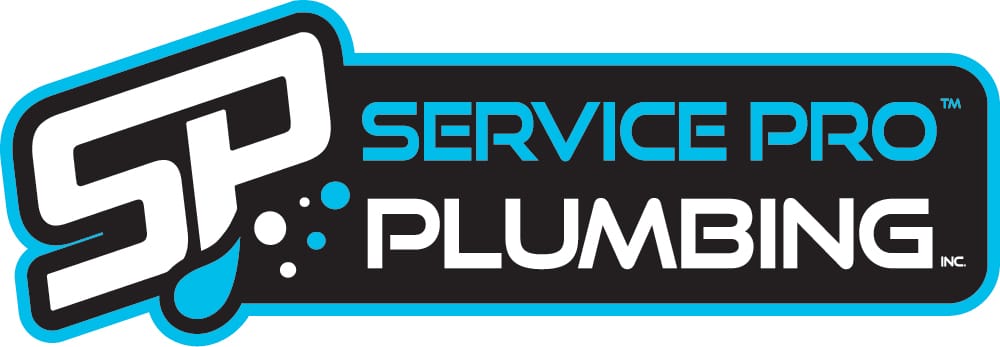Why Am I Not Getting Any Hot Water?
There’s nothing more frustrating than turning on the tap for a hot shower, only to be greeted by a blast of icy cold water. If you’re experiencing this problem, you’re not alone. Many homeowners face issues with their hot water supply at some point. Understanding the common reasons behind a lack of hot water and knowing what steps to take can help you get your hot water back on track. In this blog post, we’ll explore some typical causes of hot water problems and provide guidance on how to address them. If all else fails, reaching out to a professional plumber in Vancouver may be your best bet.

Common Reasons for Not Getting Hot Water
- Water Heater Malfunctions in Vancouver: One of the most common reasons for not getting hot water is an issue with the water heater itself. Depending on the type of water heater you have, there could be several potential problems:
- Electric Water Heater Issues in Vancouver: For electric water heaters in Vancouver, a tripped circuit breaker or a blown fuse can prevent the unit from heating water. Additionally, a faulty heating element or thermostat can cause the water to stay cold.
- Gas Water Heater Problems in Vancouver: If you have a gas water heater in Vancouver, check if the pilot light has gone out. Other issues could include a malfunctioning thermocouple or a broken gas valve.
- Sediment Build-Up: Over time, sediment from minerals in the water can accumulate at the bottom of the tank, especially in areas with hard water. This sediment can insulate the water from the heating elements, reducing the efficiency of the water heater and sometimes preventing it from heating water altogether.
- Leaks in the System: Leaks in your water heater or plumbing system can lead to a lack of hot water. A leaking tank or pipe can cause a drop in water pressure and reduce the amount of hot water available.
- Faulty Thermostat: A malfunctioning thermostat can be the culprit if your water heater in Vancouver is not reaching the desired temperature. This can result in lukewarm or cold water instead of the hot water you expect.
- Insufficient Hot Water Supply: If your household uses more hot water than your water heater can supply, you might run out of hot water. This is especially common in households with larger families or when multiple fixtures are used simultaneously.
- Issues with the Plumbing System: Problems with the plumbing system, such as a blocked pipe or a malfunctioning mixing valve, can affect the distribution of hot water throughout your home.
Steps You Can Take to Fix the Issue
- Check the Water Heater: Begin by inspecting your water heater in Vancouver. For electric units, ensure that the circuit breaker hasn’t tripped and that the power supply is intact. For gas units, make sure the pilot light is lit and the gas supply is turned on. If these checks don’t resolve the issue, consult the manufacturer’s manual or seek professional help.
- Flush the Tank: To address sediment build-up, you can flush the water heater tank. Turn off the power or gas supply, then drain the tank completely. Refill it with water, turn the power or gas back on, and check if hot water returns. If you’re unsure about this process, it’s best to call a Vancouver plumber for assistance.
- Check for Leaks: Inspect your water heater and surrounding pipes for any signs of leaks. If you find a leak, it’s crucial to address it immediately, as leaks can lead to more severe water damage and higher repair costs.
- Adjust the Thermostat: Verify that the thermostat on your water heater is set to the appropriate temperature, usually between 120°F and 140°F (49°C to 60°C). If the thermostat is malfunctioning, you may need to replace it or call a plumber in Vancouver to handle the issue.
- Evaluate Hot Water Usage: If your water heater is functioning correctly but you still experience hot water shortages, assess your hot water usage. You may need to adjust your usage habits or consider upgrading to a larger water heater or a tankless system to meet your household’s needs.
- Inspect the Plumbing System in Vancouver: Check for any issues in the plumbing system that might be affecting hot water distribution. This could include blocked pipes or faulty mixing valves. If you’re not comfortable performing these checks yourself, a professional can help diagnose and fix the problem.
When to Reach Out to a Professional?
If you’ve tried the above steps and still aren’t getting hot water, it may be time to contact a professional. A skilled plumber in Vancouver can diagnose and address more complex issues with your water heater or plumbing system. They have the expertise to handle repairs and replacements efficiently, ensuring your hot water system is back up and running smoothly.
When selecting a Vancouver plumber, look for one with experience in handling water heater issues. Check reviews, ask for recommendations, and verify their credentials to ensure you’re choosing a reputable professional.
Conclusion
Not getting hot water can be a frustrating experience, but understanding the common causes and solutions can help you address the issue more effectively. From checking your water heater and flushing the tank to inspecting for leaks and evaluating your hot water usage, there are several steps you can take to resolve the problem. If you need expert assistance, don’t hesitate to reach out to a qualified Vancouver Plumber. They’ll provide the necessary expertise to restore your hot water and ensure your system operates efficiently.
